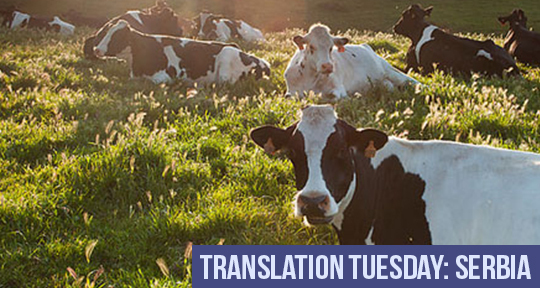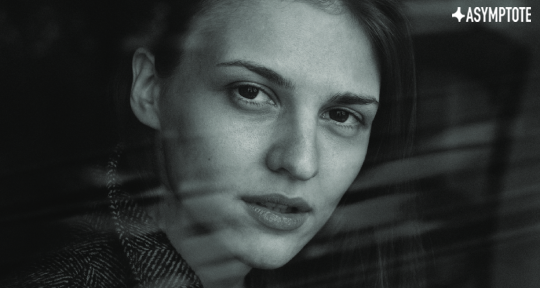For this week’s Translation Tuesday, memories of a pastoral youth emerge as an urban woman’s coming-of-age in these selections from Serbian poet Radmila Petrović. Our speaker alternates between moments of bittersweet nostalgia for her erstwhile village life (“The Curse of the Woods”), and a reckoning with the violent patriarchal norms of her home (“Forest, Plow, Primrose”). This sequence of poems demonstrates a liberated wisdom beyond the stifling lessons of past generations, a voice which confronts the brutality of patriarchy—and even the alleged inefficacy of poetry itself—with an acerbic wit (“Above Your Collarbones,” “Just Checking”). Petrović’s verse masterfully bridges a bitter, world-weary narrative voice with moments of childlike vulnerability (see especially the power of maternal silence in “The Language of Plants”), and deploys bucolic images alongside moments of bodily destruction. Of particular note is the poet’s use of line breaks (here captured by the superb translation from Jovanka Kalaba and edited by Ellen Elias-Bursać) to almost mimic the process of gradual, episodic recollection—and the hesitation warranted by traumatic memory.
The Curse of the Woods
does never came near the households
we would see them when we headed uphill
to pick rosehips for jam
one summer while mowing a meadow
Father accidentally mowed a fawn
the mountain wailed at sunset
ever since that day I have always
walked in front of the mower
moved rabbit kits out of the way
catapulted snakes with a pitchfork
ever since that day I have carried the curse of the woods
your doelike heart sees yellow hunting dogs
in my eyes
my fingers feel like blades of a mower
You can’t do this anymore, you said
Mother put my legs out with the hay
this morning
for the cows READ MORE…


